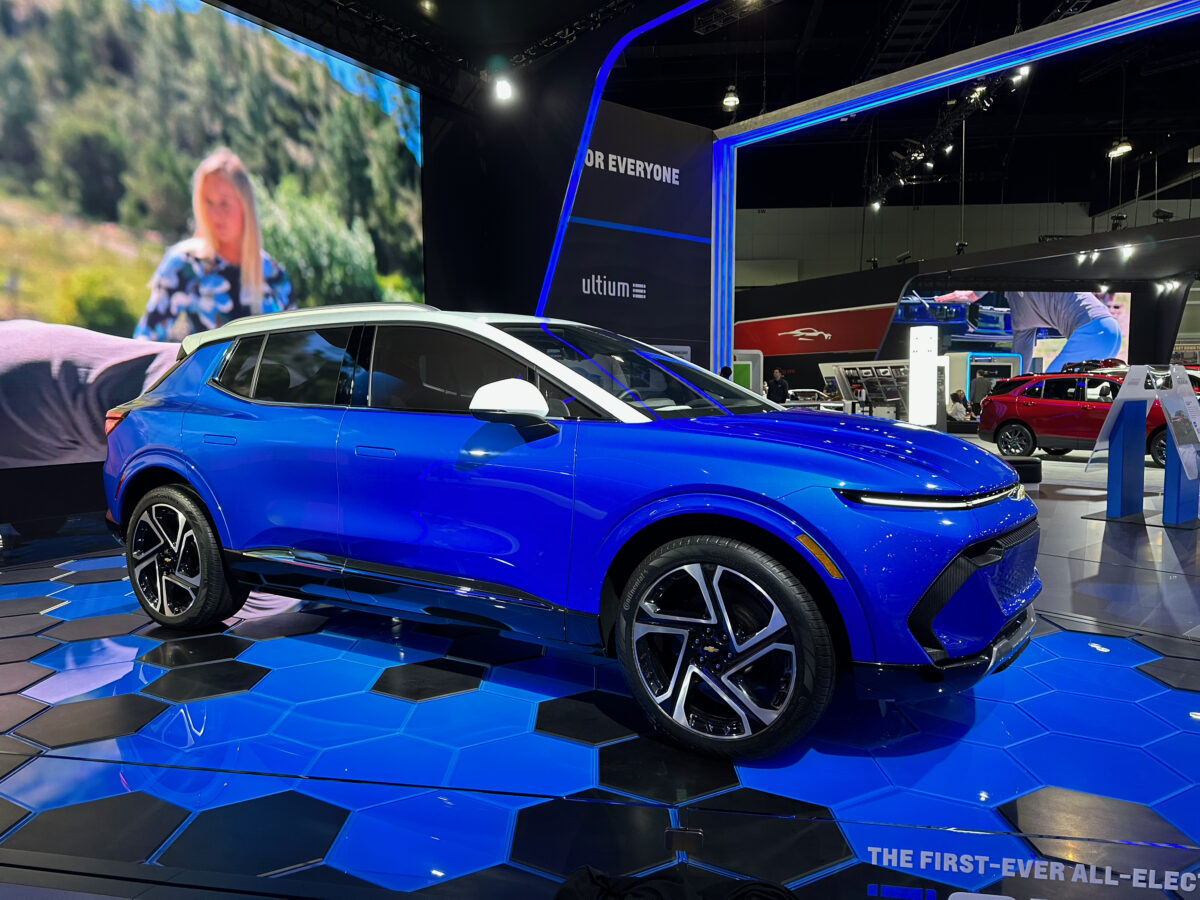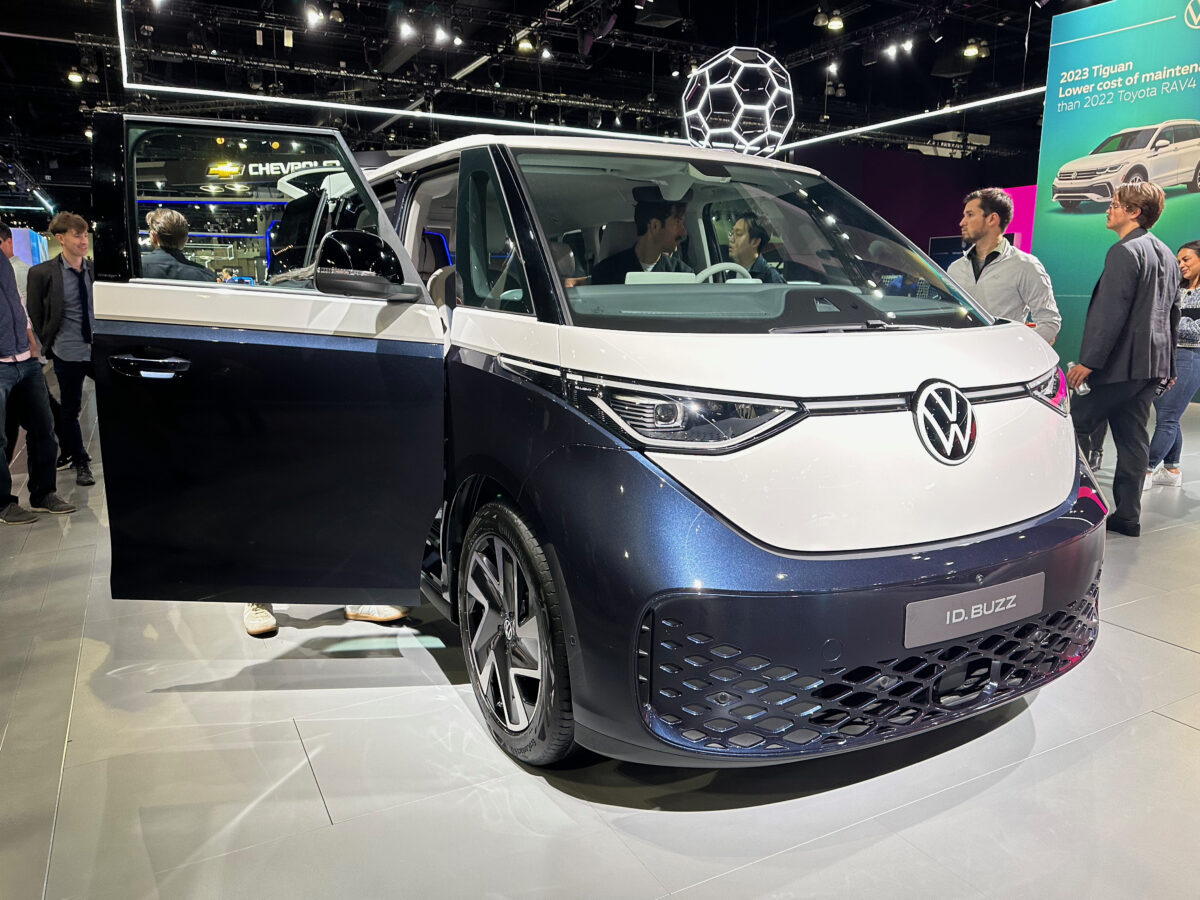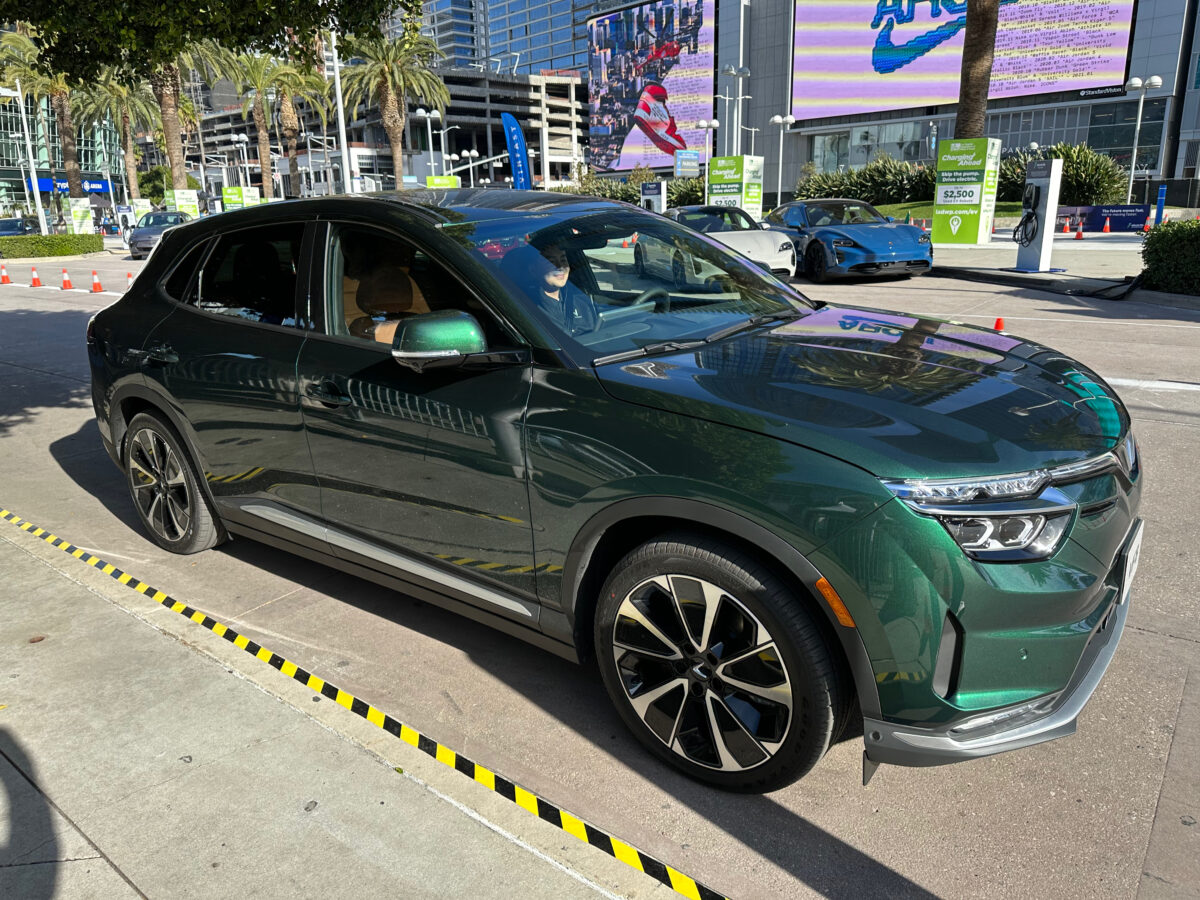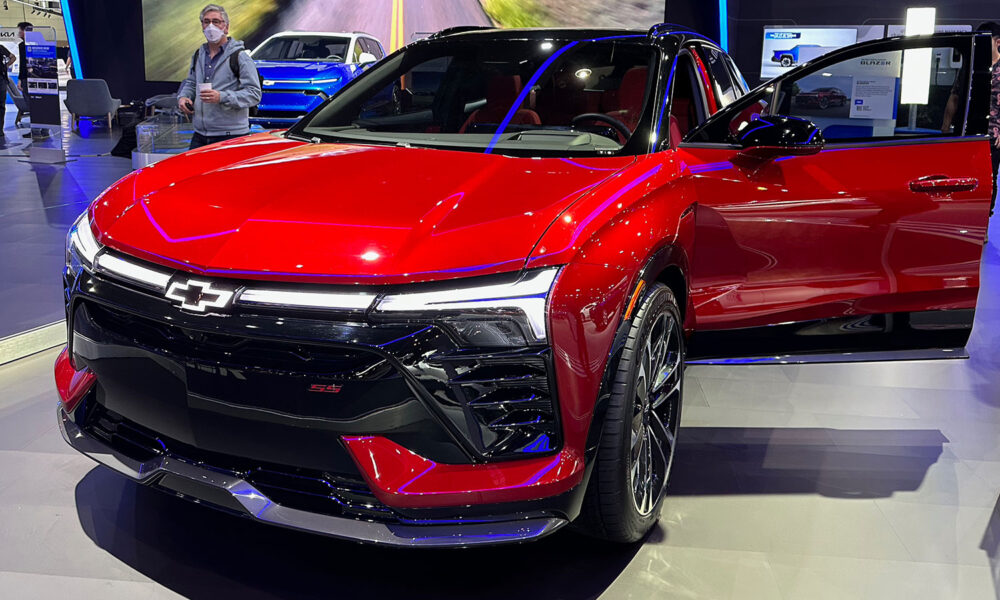I recently had the chance to visit the Los Angeles Auto Show and I was amazed at the number of electric vehicle (EV) offerings. The first time I had visited the show in 2015, there were only a handful of EVs scattered among hundreds of gasoline cars and trucks, while this year many automakers had EVs front and center in their displays.
From prototype promises to real EVs
One constant in auto shows is the display of concept cars and prototypes. In prior years, the EV “cars of the future” often outnumbered the EVs that were actually for sale at dealers.
However, most of the EVs at the show were vehicles currently on sale and represented a wide range of vehicles. There are several crossover SUV models now available, such as the Hyundai Ioniq 5, VW ID.4, and Nissan Ayria. Automakers are also starting to make EVs available in the pickup truck segment. Electrifying pickup trucks is important to reduce emissions because gasoline pickup trucks produce much more global warming pollution per mile driven compared to the average car.
To be sure, this year there were also EV prototypes on display, but most were vehicles that are slated to arrive for sale in the US in 2023 or 2024 rather than mere concepts. For example, General Motors’ display featured a fully-electric pickup (Chevrolet Silverado) that goes on sale in the first half of 2023 for fleet customers, as well as two fully electric SUV models also slated for next year.


EVs mean not just new models, but also new automakers
The switch from gasoline to electric drive of course means new models, often with better performance and new features. But switching to electricity has also opened the door to new automakers, as complex engines with proprietary technologies are replaced with comparatively simpler electric motors and batteries. This year’s auto show marked the debut of VinFast, which plans on starting deliveries of their fully-electric SUVs to US customers next month. New EV companies like Tesla, Rivian, Lucid, and VinFast mean new opportunities for car buyers to choose an EV for their next purchase and will also likely push existing automakers to move quicker to electrify their offerings.

Regulations still important to ensure the transition to EV accelerates
Even with the progress we are seeing in the availability of EV models now, policies like the Zero Emissions Vehicle regulations are still important. While many automakers are bringing EV options to buyers today, some are lagging behind. For example, Honda (the 4th largest selling brand in California) does not currently have an EV offering. To ensure we reduce climate-changing emissions, we will need to see progress from all automakers. In California, 35 percent of all model year 2026 new cars will need to be zero emission models (battery electric, plug-in hybrid, or fuel cell electric), increasing to 100 percent by 2035.
Some automakers (like Tesla and Rivian) are already at 100 percent EV sales and others like Volvo have pledged to go all electric before 2035. However, having the ZEV regulation means that all automakers will have to soon ramp up their transition to EVs.
And while this transition is happening in California first, other states have the ability to adopt these regulations to ensure availability of new EVs for buyers in their state.

